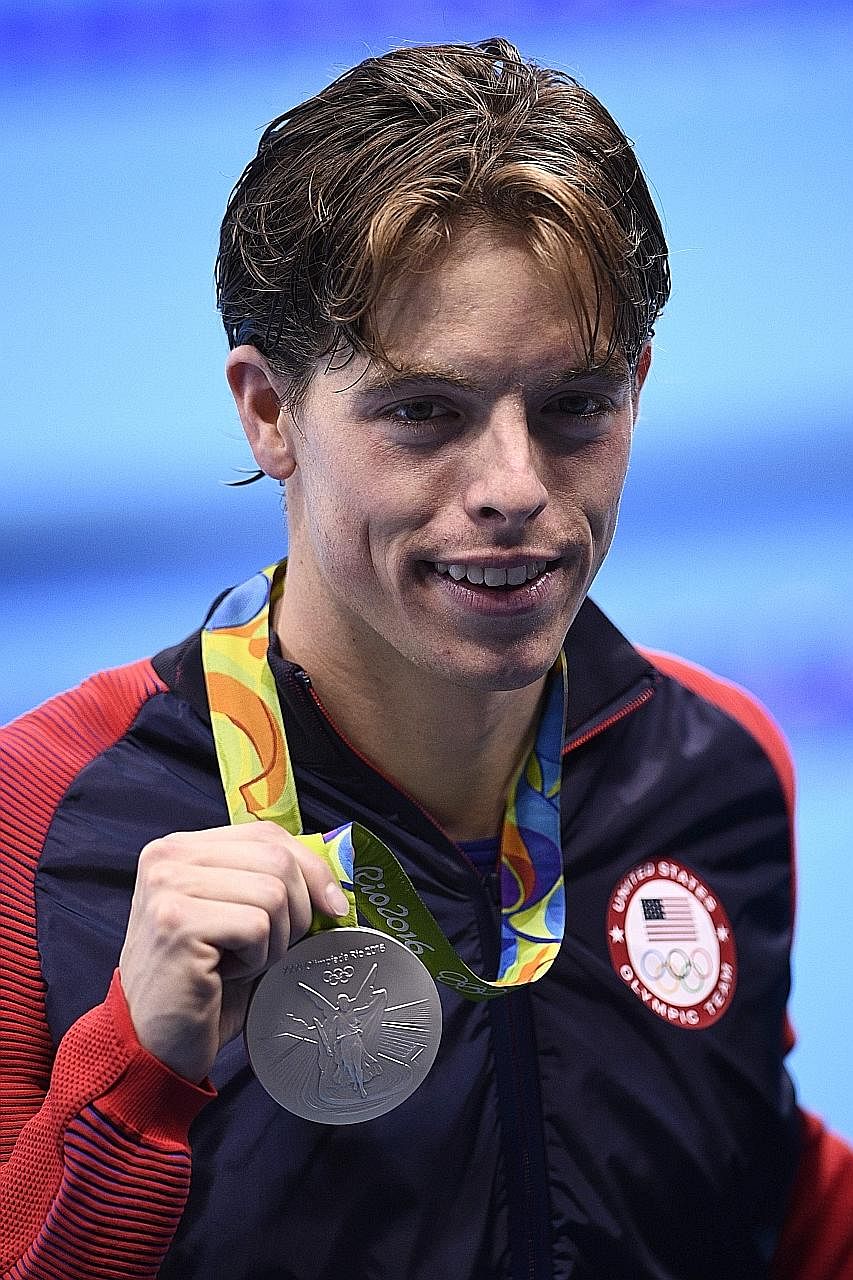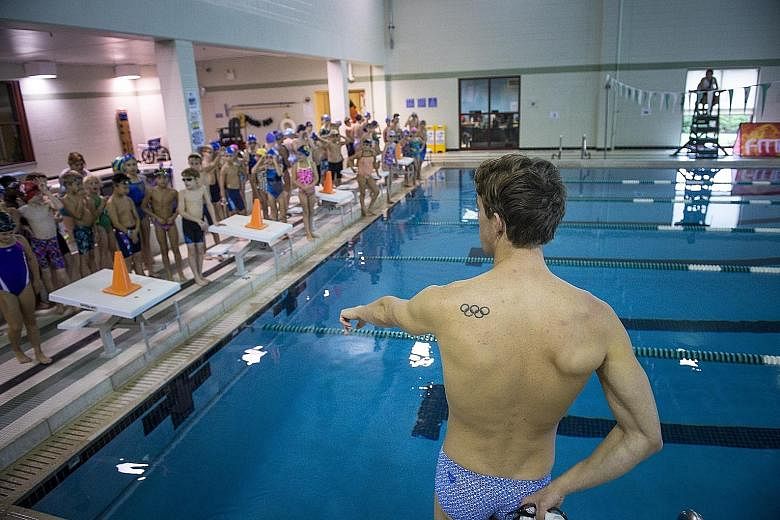MEDIA (Pennsylvania) • In the glow of post-Rio glory, following a dazzling performance by the United States swimming team, its most famous members drew headlines as they entered new chapters of their lives: Michael Phelps embracing fatherhood and retirement, Katie Ledecky starting classes at Stanford, Ryan Lochte - well, let's just say he took a roundabout path to competing on Dancing With The Stars.
But for the vast majority of the 47 American swimmers - and for that matter, the 550 athletes that made up Team USA - re-entry to American life was a far less celebrated affair. And plenty of them, like Connor Jaeger, weighed the realities of economics, physiology and time commitment - and decided, even in the prime of their athletic lives, not to spend four more years training and sacrificing.
And so, at age 25, with his silver medal in the 1,500m freestyle under his belt, and armed with a master's in business management from Michigan and just enough fame (he hopes) to open some doors to the corporate world, Jaeger has effectively retired from competitive swimming.
"We can't all be Michael Phelps and be set for life," he said. "I ended up going further with swimming than I ever thought I would. But I was always making decisions along the way where - if I stopped swimming tomorrow, and I'm not an athlete any more, how am I going to be ready? That's how I lived my life."
Thus, instead of returning to the pool with an eye towards the 2020 Tokyo Olympics - and piecing together, through sponsorships, appearances, stipends and bonuses, the six-figure income needed to accomplish that - Jaeger has moved to New Jersey and is flinging himself into the Manhattan real estate industry.

"I'm super-competitive, and I hate losing," he said. "But I can direct that where I want to. I'm hoping that whatever job I get, I can channel it."
How much is a single Olympic silver medal worth in real terms? Probably not as much as you think.
The US Olympic Committee attached a bonus of US$15,000 (S$20,790) for silver medals this summer (US$25,000 for a gold), and USA Swimming tacked on another US$30,000 (or US$75,000 for gold).
The money that will help bridge the gap during Jaeger's transition from elite professional swimmer to ground-level corporate worker.
His two major sponsorship deals, with a swimwear company and a credit card, will expire at the end of the year.
The silver medal could push him into a slightly higher bracket for sponsorship earnings in future years, if he were to stick with swimming - but "it isn't life-changing money," he said.
"A lot of people have multiple golds. I had a silver," he added. "I'm not downgrading that - I'm plenty, plenty proud. But in the grand scheme - who's going on the (cereal) box? There are only so many sponsors wanting to sign up swimmers."
What the silver medal can do, Jaeger has found, is open doors.
"A lot of people are willing to meet with me because of my background, but from there you still have to prove yourself," he said. "Some people are more impressed than others. (So) maybe a portion (of the interview) will be about that."
At age 25, Jaeger is not washed up as a swimmer. But in a sense, he was - at least as a distance specialist. The 1,500m gold medallist in Rio was Italy's Gregorio Paltrinieri, who was 21. The previous six Olympic champions in the event, respectively, were 24, 24, 20, 22 and 18.
Jaeger would be 29 in Tokyo.
"I think if Connor wanted to do it, he could do it," said his agent, David Arluck. "I don't think he'd be out-talented in the next four years. The question becomes the commitment level."
But Jaeger realised he could not afford to lose four more years in the corporate rat race.
"Being 25 goes both ways," he said. "I'm still only 25, and I have time to redirect my career. But also, I'm already 25, and most of these jobs I want, you need a couple of years of work experience. The people I'm competing again, they've already gone through the experience of (working) for a couple of years."
WASHINGTON POST

